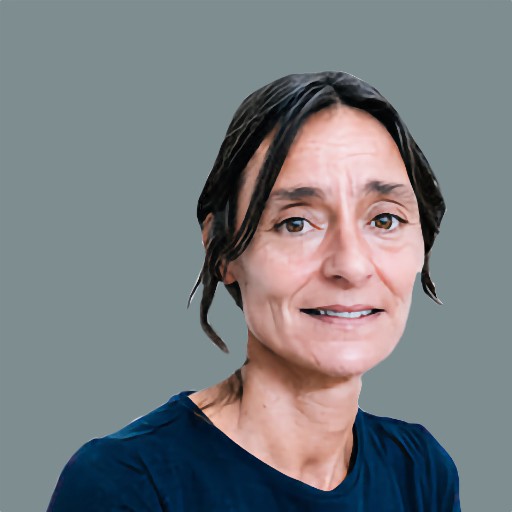SINADURAK

Tatiana Moutinho
Miembro del Bloco de Esquerda
On the 50 years of the Carnation Revolution, Portugal's political landscape turns right
2024-03-18ES
To understand how we arrived at the elections on 10 March, which marked the end of a political cycle and a country’s shift to the right, it is perhaps important to take into account to two past elections.
Foto. Unsplash / Jens Aber
The political earthquake
(or, how an absolute majority can be a source of instability)
To understand how we arrived at the elections on 10 March, which marked the end of a political cycle and a country’s shift to the right, it is perhaps important to take into account to two past elections. In 2019, after a four-year term that had been completed in full in which the Socialist party (PS) (which had not won the elections) was able to govern by virtue of parliamentary agreements with the two parties to its left (Bloco de Esquerda and the Communist Party), the PS won the elections and decided to govern waiving any agreements with the left.
From the parliamentary representation that resulted from the 2019 elections, in which a far-right MP was elected for the first time, PS would be forced to negotiate the approval of the State Budget every year, which they managed to do in 2020 with the Communist Party, but did not want to do in 2021 - any possibility of negotiation was emptied by the President, who announced that he would dissolve parliament if the State Budget wasn't approved even before the presentation of the Budget; it was a possibility that the President had at his disposal, but it certainly wasn't the only one. These elections took place in a dramatization setting by the Socialists of blaming the left-wing parties for their own failure and focusing a large part of the campaign on the threat of a right-wing government with the far-right, which was greatly encouraged by the refusal of the leader of the main centre-right party to clarify his alliance policy. This strategy proved to be successful: in order to put up a barrier against the far right, a significant share of the electorate of the left-wing parties voted massively for PS, which came out of the election with a landslide victory and an absolute majority. Twelve MPs from the far-right party sat in the new parliament, and their vote increased from 1 to 7 per cent. One could think that Portugal would have a stable government for four years. However...
7 November 2023 - Exactly one month after the events that led to the worst massacre we've witnessed this century, the government led by socialist António Costa falls with a thunderous bang. At the epicentre of this phenomenon, an investigation into major green energy projects and the construction of the EU's largest data centre is underway, targeting CEOs of major companies, a mayor, the minister of infrastructure, members of the prime minister's cabinet and, to everyone's amazement, the alleged involvement of the prime minister himself. In light of this news, António Costa tendered his resignation to the President of the Republic, who promptly accepted it and decided to dissolve parliament and call new early elections - once again, the President's decision was not the only one that was constitutionally possible.
«One could think that Portugal would have a stable government for four years»
We currently know that the prime minister's alleged involvement is extremely implausible, raising very serious doubts as to whether the judiciary interfered in the sphere of political power, with a very concrete result: forcing the country into elections with the political power immersed in a climate of high suspicion. In short, the conditions were in place that would shake the tectonic plates that underpin the Portuguese political landscape.
The electoral tsunami
With the exception of three parties with parliamentary seats (the far-right party Chega, the centre-left party Livre and the animalist party PAN), all other parties went into these elections with new leaderships. The new leader of the Socialist Party, elected just a couple of months before the elections, Pedro Nuno Santos, was António Costa's former minister for infrastructure and housing from 2019 (he resigned in late 2022 after a scandal involving the payment of a hefty indemnity) and is known as the political negotiator with the left-wing parties in the government from 2015 to 2019. He comes to these elections with major difficulties that he was not able to overcome throughout the campaign: being the new leader of the incumbent party with a catch-all strategy vis-à-vis the electorate.
The new leader of the centre-right party (PSD - Partido Social Democrata/Social Democratic Party), Luís Montenegro, opted to go into the elections in a coalition with the conservative party (CDS/PP who had lost parliamentary representation in 2022) and a vestigial party (PPM): the Democratic Alliance (AD - Aliança Democrática), a lame and feeble attempt to reprise the old right-wing coalition that governed between 1979 and 1982. During the election campaign, AD presented, primarily, a programme based on lower taxes, a return to public-private partnerships and a strengthening of privatisations - a light and approximate version of the programme of the neoliberal party IL (Liberal/Liberal Initiative), which ran in these elections also with a new leader, Rui Rocha). However, unlike his predecessor, Luís Montenegro was very clear about his post-election alliance policy: he would not count on the far right for any government solution. This created a cordon sanitaire that proved effective throughout the campaign: not much was said about the far right and nobody was available to talk to them.
The left-wing parties Bloco de Esquerda (BE - Left Bloc) and the Portuguese Communist Party (which always stands in coalition with the Ecologist Party - CDU) also stood in these elections with new leaders: Mariana Mortágua and Paulo Raimundo, respectively. Their political proposals aimed, above all, to respond to the major crises the country is facing (housing, health, education) and to increase the income of those who work or have worked. Very early on in the campaign, Mortágua called for compromises on the left, a call also made by Raimundo towards the end of the electoral campaign period.
«During the electoral campaign, the far-right party's only clear message was based on the idea of "cleaning up Portugal" - a message copied from the far-right in other countries»
After a long electoral night the preliminary final results[1] of the National elections in Portugal dictated that, contrarily to poll predictions, the right coalition AD has an incredibly slim victory - with 29.5% and 79 MPs (27.7%, 77 MPs in 2022) - over the Socialist party, which ranked second with 28.6% and 77 MPs (41.4% and 120 MPs in 2022). The fourth political force remains the neoliberals of IL with almost the same score as two years ago (5.1% and 8 MPs). Bloco comes fifth and, although with a 30.000 votes increase, maintained its 5 MPs and scored 4.5% (4.4% in 2022). The Communist party lost votes (almost 37000) and two MPs and has now 4 seats in the parliament and 3.3% of share of votes (4.3% in 2022). With the same percentage comes Livre, with 4 MPs (1MP and 1.3% in 2022). The animalist party PAN has approximately the same results as in 2022: 1 MP and 1.9%.
The resounding winner of this election is the far-right party Chega (Enough) with 18.1% and 48 MPs (7.2% and 12 seats in 2022), i.e., more than doubles its score and quadrupled number of seats in the parliament. Chega managed to elect MPs in all electoral circles except three (one in the mainland and in the islands of Madeira and Azores). Regarding the far-right party, if at the beginning of the eletoral campaign polls were pointing towards an excellent result (between 17 and 20%), over the past weeks they were pointing towards a declinem suggesting a result od 13% or lower. During the electoral campaign, the far-right party's only clear message was based on the idea of "cleaning up Portugal" - a message copied from the far-right in other countries, where these parties portray themselves as being “anti-establishment". Programmatically, the party managed to say a bit of everything and its opposite, presenting clearly unrealistic proposals, although this confusion or lack of ideas proved not to be in any way penalising.
But there is another element that emerged from these elections and to which particular attention should be paid: more than 750,000 voters mobilised to vote, which meant that the turn out in these elections was the highest since 1995 - 66.2% of casted votes. Although it's still too early to have rigorous and in-depth electoral studies, it seems apparent that this mobilisation favoured, above all, the far-right: the constituencies where Chega grew the most, were the constituencies where there was the biggest increase in the number of voters. This observation seems to be a clear indicator of an extraordinary desire for disruption that can in no way be disregarded and which, above all, needs to be described and deeply understood.
Foto. Unsplash / Todd Turner
Breaking the waves
The President is currently having hearings with all parties represented at the parliament and shall, by the 20th of march, invite the leader of the centre-right coalition to form a government, possibly with the neoliberals (IL).
Today, the dark tide that has swept across the country seems to have left three isolated islands on the surface: a right-wing bloc with 87 MPs, a left-wing bloc with 91 MPs and the far-right bloc with 48 MPs. With such a parliamentary geometry, it seems difficult that the new government will be able to survive until the end of the term, and the new government will be forced to surf the coming waves with redoubled care. On its left, and for the time being, the Socialists seem to be clear in their desire to lead the opposition to the future government; on the other hand, if such an opposition provokes to the resignment of the government, they will run the risk of being labelled an "element of instability". On its right, the far-right does not stop roaring its desire to be part of the “solution” and guarantee stability, which leaves the future government in a paradoxical position: if it gives in, it runs the risk of hollowing out the right; if it sticks to the position assumed during the election campaign, it will be fostering the discourse of victimisation that the far-right is so proficient at using to its own advantage.
«What these elections show us is that it is this new-extreme right that is occupying the void into which the mass of disinherited people created by the neoliberal and austerity policies of recent decades have been thrown»
It's not new: in politics there are no "empty spaces", and what these elections show us is that, as of today, it is this new-extreme right that is occupying the void into which the mass of disinherited people created by the neoliberal and austerity policies of recent decades have been thrown.
The two-party system that prevailed in Portugal until 9 March has left, with different nuances and more or less accentuated phases, a trail of impoverishment, precariousness, uncertainty and hopelessness. And it wasn't just the austerity years of bad memory of 2011-2015. It should be noted that after a pandemic, the resurgence of war in Europe and in the midst of an inflationary crisis, during the last two years of PS government, while health and education were plummeting towards collapse, in the face of an unprecedented housing crisis and a spectacular rise in the cost of living, the government was focused on bringing Portugal's debt to historic lows, making "economic growth" break records, etc. In a word, obeying every economic indicator that the orthodoxy of neoliberal economic doctrine dictates and presents as "successful development".
On the left, times are demanding and action is needed, and perhaps the greatest challenge is to reconfigure hope in a future that effectively crystallises a rupture with "the state we've reached"[2].
[1] [1] 4 seats are still not attributed - these correspond tor the electoral circles of Europe and outside Europe and are expected to be announced on the 20th of March.
[2] Free translation of the expression “o estado a que chegámos” by Salgueiro Maia, historical captain of the Carnation Revolution, in a famous speech to the troops that marched over Lisbon in the evening of the 24th of April 1974.




